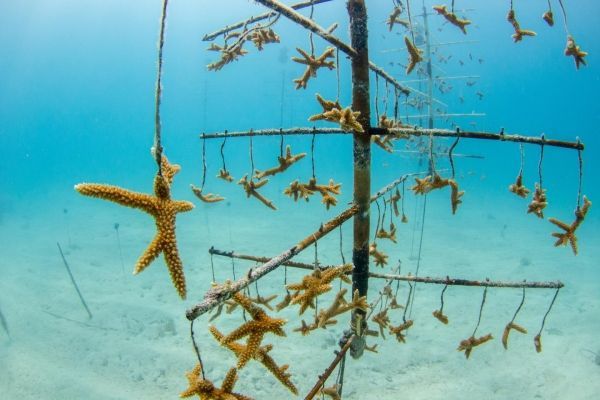Bleaching events caused by rising water temperatures could increase mortality among a coral species already threatened by disease, says new research by Mote Marine Laboratory and Penn State, US, published in eLife.
The study on the species Acropora cervicornis, known as the staghorn coral, emphasizes the need for maintaining genetic diversity while at the same time increasing resilience within the species, as part of restoration efforts to help prevent further loss in the Florida region.
Once prevalent throughout the Florida Reef Tract, the staghorn coral has suffered substantial declines over the last several decades due to increasing ocean temperatures and disease outbreaks, with no evidence of natural recovery. The Florida Reef Tract is currently estimated to be worth over $6 billion to the state economy, providing over 70,000 jobs and attracting millions of tourists into Florida each year – but much of its ecosystem services will be lost if the living coral is not restored.
“With imminent threats to the staghorn coral, it is now the focus of restoration efforts throughout much of the Florida region, thanks to the existence of some coral genotypes that are more resilient to threats than others,” says lead author Dr. Erinn Muller, Program Manager and Science Director of the Elizabeth Moore International Center for Coral Reef Research and Restoration at Mote Marine Laboratory, Florida. “However, there could be tradeoffs associated with these resilient traits, such as heat-tolerant corals being highly susceptible to disease infection.
Read more at eLife
Image: Staghorn corals grown in Mote Marine Laboratory's underwater nursery in the Florida Keys, US. (Credit: Conor Goulding/Mote Marine Laboratory)


